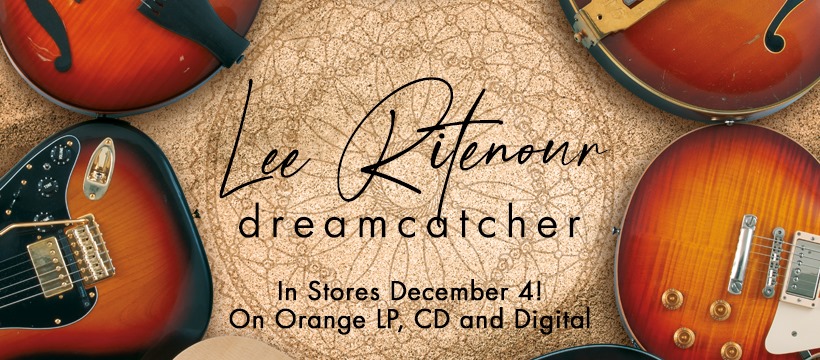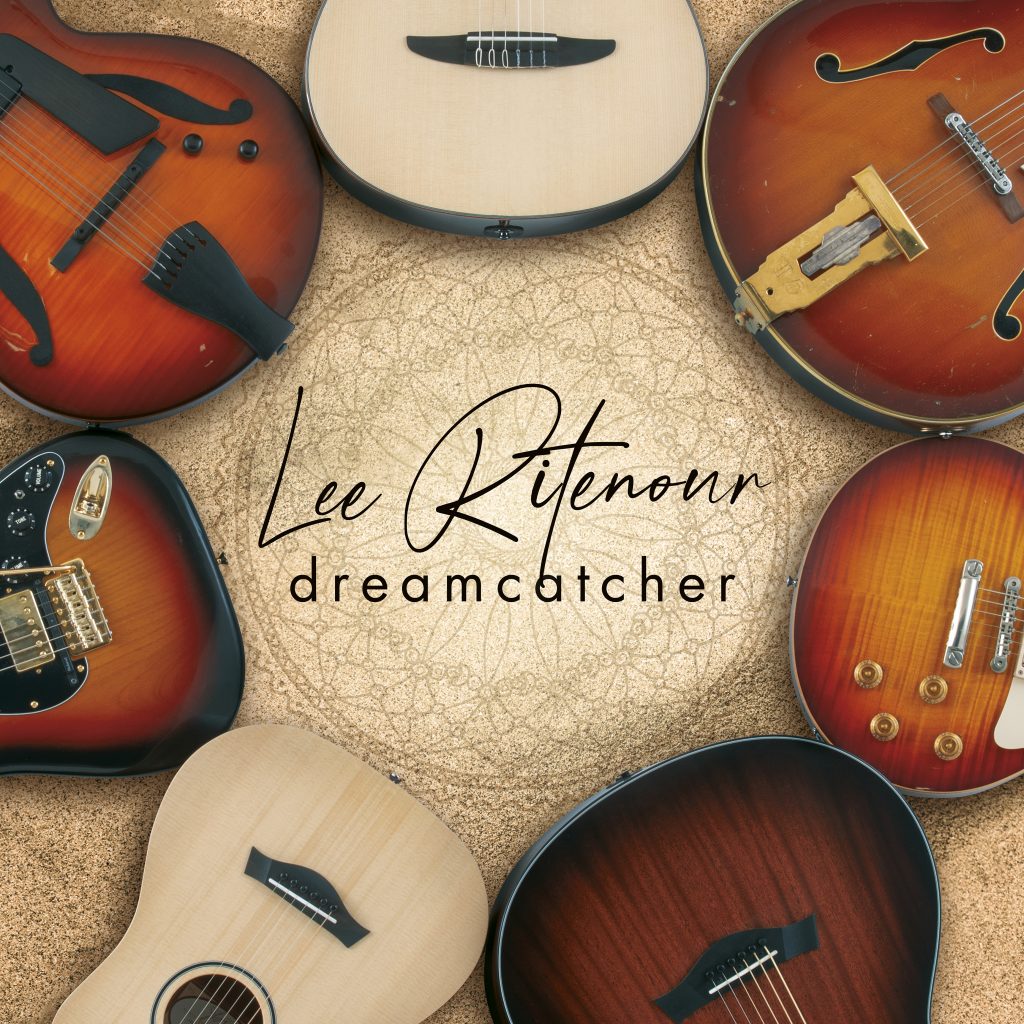Lee Ritenour will release new album “Dreamcatcher”
Master guitarist Lee Ritenour will be releasing his brand new album, “Dreamcatcher” on 4th December 2020 via The Players Club. For Lee Ritenour, there aren’t many ‘firsts’ left to achieve. During his dazzling five-decade career, the fabled LA guitarist has taken his music to the outer limits, alighting on every genre and occupying every position in the rock ‘n’ roll firmament. He’s been an enfant terrible of ’70s fusion, a crossover star of the ’80s pop chart, an honorary exponent of Brazilian jazz, and the fingers behind ’90s supergroup, Fourplay. Ritenour’s accolades include: 45 albums,16 Grammy nominations, Alumnus of the year at USC, Los Angeles’ Jazz Society Honoree (2019), plus thousands of sessions with legends such as Frank Sinatra, Pink Floyd, B.B. King, Tony Bennett, among others.

And yet, when he checks the rear-view mirror, the 68-year-old acknowledges he’s never made a record like “Dreamcatcher”. “People have been telling me for years: ‘Rit, you gotta make a solo guitar record’. In the past, I’ve always been the band guy, the ensemble guy, the collaborative-guitar-player guy. So this was the one project I hadn’t done. And this year, I knew it was time.”
Weaving tapestries of instrumental guitar and conjuring eclectic moods, the 12 tracks of “Dreamcatcher” rank amongst the most melodic and tinglingly beautiful in Ritenour’s catalogue. But there’s a power and purpose here, too, hinting at the darker circumstances that sparked this new record. “Our house and my studio in Malibu, California burnt down in 2018,” he recalls. “About 100 of my guitars went up in the fire, plus 40 amps, lots of music, the history of my whole career, pretty much. A week after the fire, I went to the hospital, which I’d never had to do before, for surgery to replace an aortic valve. So those incidents and the support from my family and friends absolutely went into this music. Making this record was a life-saver for me.”
Even without lyrics, every track tells a story. Take the molten blues licks of “Abbot Kinney”, named for the fabled boulevard in Venice, California. Anyone living through the age of Covid-19 will feel a deep affinity with “2020”: a three-part symphony in which Ritenour takes the pulse of the times. “The three parts were a reflection of what was going on this year,” he nods, “when all of a sudden everybody’s life shut down. I was thinking about the young musicians that were out of work – and people in every walk of life.”
Ritenour strived to switch up musical styles – from the title track’s dovetailing classical guitars to the Taylor baritone that drives “Starlight’s” tumbling folk, and the mad scientist multi-tracking of “Couldn’t Help Myself.” “For DG” salutes the harmonic sensibilities of the great producer, pianist, and long-time comrade, Dave Grusin.
But it couldn’t be further from “Charleston”, whose mellow slink is laced with bittersweet thoughts on the ebb and flow of US race relations. “A few years ago, I played in Charleston, South Carolina,” recalls Ritenour, “and it was charming and the people were warm, and it was a very mixed, soulful audience. Charleston has a history of the beginnings of slavery, but this was modernday Charleston, y’know? But then, a few years later, I’m writing this tune while watching the continuation of the struggle. As musicians who travel all over the world, we go, ‘What? This shit is still going on in the US?’ So it was appropriate to dedicate that song to Black Lives Matter.”
Long-standing fans will recognize “Morning Glory Jam” as a rework of the guitarist’s classic 1977 tune. “On 2015’s “A Twist Of Rit”, I had revisited a lot of older material, so I wanted to keep this record fresh. But one day, I remembered when I did sessions for Barry White and how there had been four or five guitar players all playing these incredible rhythm parts. That’s the kind of groove I had in my head for this new version of Morning Glory.”
Those eclectic early tastes served Ritenour well. The jazz giants at The Lighthouse were a passion for life: just check out his love-letter to the great Mr Montgomery on 1993’s Wes Bound. But from the day he lucked into his first session for The Mamas And The Papas at age 16, Ritenour had the widescreen musicality to forge a career as one of LA’s busiest session men. “I remember John Phillips had this incredible studio in his Beverly Hills mansion and I just thought, ‘This is what I want’. As for my favorite and memorable sessions, I remember getting called by Bob Ezrin to record on “One Of My Turns” and “Comfortably Numb” on Pink Floyd’s, “The Wall”…incredible. And then there was Quincy Jones producing George Benson’s, “Give Me the Night” album and all of us waiting ‘til 4am for Stevie Wonder to show up and play a song he’d written for George’s album…Ha! Too many memories!”

His jazz supergroup Fourplay scored a commercial hit with their eponymous 1991 debut album. For Ritenour, the attraction was all about the chemistry between the band members. “The magic was immediate between me, Bob James, Harvey Mason and Nathan East. You can’t draw that sort of thing up on a chart – it either works or it doesn’t. We did three albums, but then the business got so complicated that I took a pass in 1997. But there was always friendship and musical respect, and we are talking about doing one last reunion project together.”
In a career full of left-turns, “Dreamcatcher” is another thrilling detour for Lee Ritenour. Both by necessity and design, this latest album represents music in its purest form: one man, channelling his headspace and the history unfolding around him, using the instrument that has sustained him all these years. There is a first time for everything and there has never been a better time for “Dreamcatcher”. “I’ve never done anything like this before and it’s an important missing piece in my guitar history. It was inspiring and it was meant to happen this year, in these times – after a lifetime of playing the guitar,” he considers, “this project reaffirmed just how much I love the guitar.”




